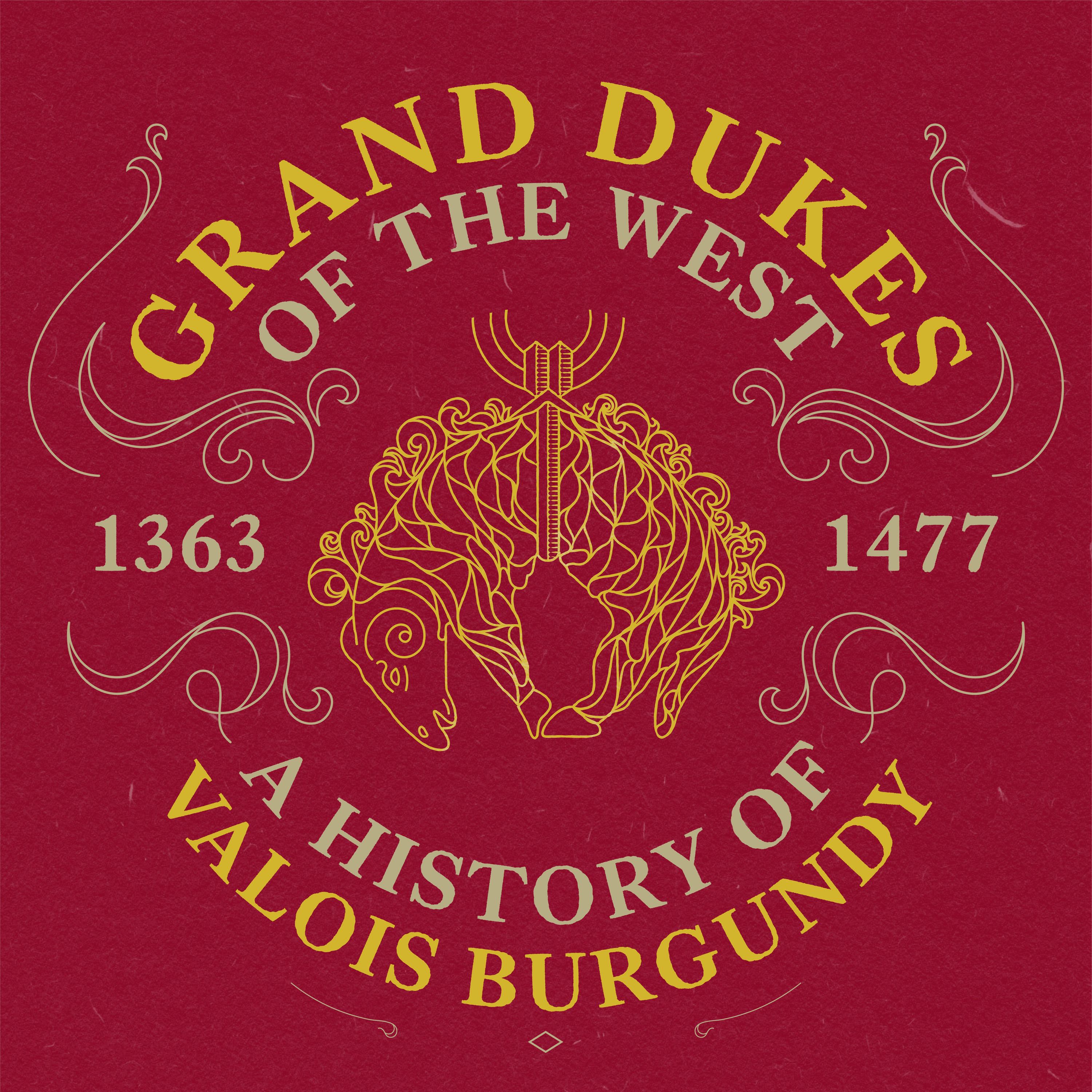
La Fayette, We Are Here!
La Fayette, We Are Here!
The French Revolution, a Worldwide Tremor
Use Left/Right to seek, Home/End to jump to start or end. Hold shift to jump forward or backward.
The French Revolution shook the world from 1789 to 1799 and completely transformed modern European societies. By ricochet, it transformed the whole world. It was a real political tsunami, with immediate and long term consequences. With the following Napoleonic wars, it shaped the Nineteenth century in a way that nobody could foresee only a generation before.
There are many misconceptions about the French Revolution, like the idea that a mob captured the king and guillotined him right away. It's not at all what happened. It's a lot more complicated than that. Hopefully you will find this episode palatable and a good entry into the fascinating events of the Révolution.
For those who want to know more, I highly recommend that you listen to "Grey History: The French Revolution & Napoleon" by William Clark.
Timecodes:
Introduction
06:53 - The Origins of the Révolution
17:25 - Adieu, Old Regime!
26:48 - Working with Louis XVI
36:15 - The French Republic
41:37 - The Terreur
48:16 - The Directoire
53:58 - The Consulat
57:57 - Conclusion
Music: Marche pour la cérémonie des Turcs, composed by Jean-Baptiste Lully, arranged and performed by Jérôme Arfouche.
Art: Prise de la Bastille by Jean-Pierre Houël, 1789
Reach out, support the show and give me feedback!
It's a bright and sunny day. The king, Louis XVI, has a relaxing day planned. There are a few things to take care of, but mostly entertainment. He meets his courtiers, then goes on a hunt. An old privilege of the nobility, one of many. The game is there, but His majesty doesn't manage to catch anything. Obviously, this isn't a good day for the French king, nor a good period for his reign.
Louis is troubled. The country is in turmoil. For the past months, the pressure has been growing for the king and the government to solve the critical financial situation. Inflation is out of control. The price of bread rises everyday. The French people is starving. The king hoped that this day of hunting would help clear his mind of all this. But he his so disappointed that the only thing he writes in his hunting journal is "Rien", "Nothing". He goes to bed in his palace of Versailles, hopeful that tomorrow would bring better news than the ones of the previous weeks. We are July 14th, 1789.
But the king has to be awaken a couple hours later. The Duke of Rochefoucauld-Liancourt brings grave news from Paris. He tells the king that the royal prison of the Bastille has been stormed by the Parisian mob. Its governor killed. The king, not realizing the gravity of the situation asks "Is this a revolt?". The Duke answers "No, Sire, it's a revolution!"
Welcome to "La Fayette, We are Here!" The French history podcast, by a Frenchman. I am your host, Emmanuel Dubois, and today we are talking about the French Revolution, the historical event that shook the world from 1789 onwards. I will try to paint a clear picture of a very complex phenomenon here. That means that I will leave a lot of details out to focus on the main narrative. If any of you want to learn all about the intricacies of the Révolution, I recommend that you listen to the podcast "Grey History: The French Revolution & Napoleon" by William Clark, he goes into every detail you can think of, it’s a really great podcast.
By the way, I've just finished a bout of bronchitis, so forgive me if my voice is not as suave as usual dear listeners.
Let's put some borders first. The Révolution itself occurred from 1789 to 1799. By the way, I will refer to it simply as the Révolution, because calling it the "French Revolution" all the time on a French history podcast would be redundant, and it sounds cooler in French, don't you think? After that, we enter the Napoleonic era, another beast altogether. I will of course talk about the famous Corsican in this episode, but not much. Stay tune for a dedicated episode on Napoléon very soon after this one.
We are going to dive into what is really a turning moment in worldwide history. There is a before and after the Révolution for France, Europe and the World. It was a real political tsunami, with immediate and long term consequences. With the following Napoleonic wars, it shaped the Nineteenth century in a way that nobody could foresee only a generation before.
We're going to do this in four sections. First, we will discuss the causes of the Révolution and how it came about. Then, we will discuss the events that occurred from 1789 to 1792, namely the beginning of the Révolution and the failed attempt at establishing a constitutional monarchy. After that, we will dive into the arrival of the French Republic, the gloomy period known as the Terror and the First coalition against France, where foreign powers attacked her, trying to topple that new government. Finally, we will discuss the end of the First Republic and the transition to the Napoleonic era. Since I want this to be less than an hour long, I will of course have to cut out some details… no pun intended. But, hopefully, you will have a clear view of the events that took place and their consequences. Without further ado, let's get started.
The Origins of the Révolution
To understand the Révolution, you must first understand in what state France was at the time. In one word: awful. France was a paradox of a country. It had the biggest and youngest population of Europe, it had many riches. It had the oldest running monarchy in Western Europe, with a line of kings dating back to 987 and Hugues Capet. And yet, because of previous events, it was on the verge of bankruptcy and starvation.
Louis XIV had made France the greatest European power at the turn of the XVIIIth century. To learn more about that, listen to my episode on the Sun King from July 2022. He transformed an already strong monarchy into an absolute monarchy, where the king could pretty much do anything he wanted. When he died in 1715, he was replaced by his great-grandson, Louis XV. Although he'll prove relatively able as an autocrat, in the sense that he could be firm and sure of himself, he wasn't nearly as successful as his illustrious predecessor.
See, Louis XIV had wage many wars. He'd won them and enlarge the French homeland and her colonies. But he also left the country indebted, seriously so. Louis XV had to cope with that, which was no easy task. On top of that, he got the country involved in the Seven Years' War, following an alliance with France's traditional enemy, Austria. This ended in defeat and utter disaster for France, in 1763. France lost her North American colonies and was humiliated. Plus, the huge financial strain had indebted her even more.
Louis XV died in 1774 and was replaced by his grandson, who became Louis XVI. Then aged nineteen, there is a lot of hope in him. Many nobles are aware of the dire situation France is in and they believe that this young king might be able to turn things around and put the country back on its way to glory, like in the precedent century. They were wrong. Not only did Louis XVI face an impossible situation, he proved ill-equipped to face it.
Before going any further, let's digress a bit into how France operates as a country at the time. It is very rural, like most European countries, and it is divided into three societal orders known as Estates. The First Estate is the nobility, representing about 1% of the population. The Second Estate is the clergy, about 2% of the population. Finally, there is the Third Estate, englobing everybody else, 97% of the population. In that system, guess who bore the brunt of the taxes to pay for that dire economical situation? You guessed it, the Third Estate. Even though the first two were by far the richest, the average Frenchman and woman was taxed and taxed and taxed to pay for the country's expenses. The nobility and clergy paid some taxes too, but they weren't pulling their weight, not even close.
This created the first condition for the Révolution: upcoming economical catastrophe. To solve this, Louis tried a few things. One of them was hiring a Genevan banker known as Jacques Necker to address France's fiscal problems. He failed to do so, for many reasons. And at the same time, the French Foreign minister (to give him a contemporary title), Charles Gravier de Vergennes decides to partake in a new party that started on the other side of the Atlantic in 1776: the American Revolution.
By officially recognizing the United States of America in 1778, the first country to do so, France entered the war against Britain. It's involvement proved crucial, with the French fleet defeating the Royal Navy on multiple occasions and the French troops led by Rochambault and La Fayette fighting alongside the American rebels. When all is said and done, the American independence is made fact by the Treaty of Paris in 1783. France and the United States of America had begun their enduring and unique friendship. France gained almost nothing in the short term, except removing a dark stain on her honour, but that friendship will prove essential a century and a half later.
Back in France, most people are happy with the result of the French intervention. But the financial situation has degraded even more. To fight this war, France built many warships, while maintaining the largest standing army in Europe. This was not sustainable, and the country is sinking into an economic slump without any visible outcome.
Various Contrôleur général des finances, or financial ministers if you will, try to solve the issues but they face a dilemma. To do so, they need more taxation revenue and a more fluid economic system. But to achieve that, they need the clergy and the nobility to accept to pay more taxes and to give more liberties to the people living under them. Since they are the ones in charge, they refuse. It's a vicious circle, one made of centuries old laws and traditions. That circle will keep stretching and stretching until it will explode in the most formidable manner.
I should mention another item of the French political system: the parlements. These were regional court that were supposed to publish the Royal Laws, making them legal. The parlements had been abolished by Louis XV, but Louis XVI, not knowing what to do, recalled them. As I said, the man was not a proper absolute monarch. He kept changing his mind and was very easily influenced by others. That flaw will eventually be fatal to him.
I mentioned the parlements because one of them, the parlement of Paris will prove instrumental in the upcoming events. They will pretend to represent the common people, even though they will prevent them from gaining a better representation in fact. They will basically be a focusing point for the whole of the French people's grievance to go trough. By 1788 it is clear that the country is at a crossroads. The people are making their will heard louder and louder. Rich bourgeois complain about their lack of political power, even though they drive the country economically. Ever heard the phrase "no taxation without representation" my American friends? Well, these French people did too and they'd have enough. Add to that the newly important public opinion, made possible by the multiplication of newspapers and the spreading of the Enlightenment ideas, and you have a power keg about to blow. By the way, I encourage you to listen to my episode on the French Enlightenment to find out more about the ideas I'm talking about, but basically we're talking about freedom of speech, equality, fair representation, etc. You get the idea.
King Louis XVI is not the best man for the job but he's not a complete idiot, he recognizes that he's facing an unprecedented crisis. What he fails to do is to appreciate how deep the roots of said crisis are. Following riots in Paris, Rennes and Grenoble, theatre of the the famous journée des tuiles, or "day of the tiles", he agrees to have the Estate Generals convened for the first time since 1614. What are the Estates general you ask? It's basically an assembly of all three Estates that I mentioned before where they can vote on important matters. Each estate gets one vote. You heard that right, the nobility with its 1% and the clergy with its 2% each have as much voting power as the other 97%. How's that for a recipe for disaster? The date is set for May 5 1789, the fuse on the powder keg has just been lit.
Adieu, Old Regime!
So here’s the situation in 1789. France is on the verge of bankruptcy. Her institutions are fragile and contested, sometimes by her own monarch who, himself, is not clear on what to do. The judicial body of the parlements isn’t apt at solving the problems and is in open conflict with Louis XVI. The king even tried to force his will by having a lit de justice in May 1788, a way to force the parlements to comply, but it backfired. On top of that, the bad weather and economic conditions made it so that the crops largely fail and that the French people now face a new threat: hunger. The price of bread keeps rising. By the Spring of 1789, the average French family struggles to feed itself properly.
And finally, the ideas of the Enlightenment have made their way into French society. Not only do their works, like the Encyclopédie, meet with more and more success, but they now have proof of what they’ve been saying for a century. A little social experiment called the United States of America. That constitutional Republic gives credence to the capabilities of an elected and representative government.
All the conditions are met for France to explode. A starving people is nothing new, but one that has ways to contest royal authority and that has the support of a newly formed bourgeoisie, now that is new. The very concept of public opinion is relatively new at the time, and the king starts to feel its weight. And we now arrive at that crucial moment of the Estates General of May 1789.
The Third Estate, the common people, come prepared. They want better representation, elected representatives, a Constitution, the abolishment of many privileges and the First and Second Estate to pay their fair share of taxation. But went they meet Necker, who made a comeback in August 1788 after being sacked in 1781, they face somebody who blames them for the situation. The Nobility also doesn't want to budge on representativity. The Third Estate want to have as many votes as they have deputies. Since they represent 97% of the population, they would outvote the first two Estates easily. But the powers in place won't cede. The Estates General are more a battle than a reunion, from day one.
The revolutionary cogs start turning. On June 17, the Third Estate representatives, headed by a man named Bailly, agree for the need of a National Assembly and decide that any "tax adopted without its consent should be illegal". It also grows in size, with members of the lower clergy of nobility joining its ranks. A few days later, they want to meet in their appointed room, called the Salle des menus plaisirs, but the authorities have locked the doors! Outraged, the representatives meet in another place called Salle du jeu de paume and vow not to separate and to reassemble wherever necessary until the Constitution of the kingdom is established. There is no stopping them now.
The king summons the three Estates on June 23, and tries to limit the powers of the National Assembly. He obviously doesn't recognize the powers that are in motion. His advisors are incompetent and mostly yes-men, so he doesn't know how to handle this situation. Then, he asks the three orders to separate and go back home while he and his government sort things out. The Third Estates refuses. The king concedes and on July 9th, the National Assembly becomes the National Constituent Assembly and Necker is fired on the 12th.
While all this is happening, the Parisian people is boiling. They are starving and upset by the heavy presence of royal troops all over the city. There are rumours of conspirators, of foreign agents in town, of pretty much every bad situation you can think of. The strongest rumour is about brigands, making their way to ambush and steal from the people. They decide to arm themselves. On July 14th, thousands of them head for the biggest arms reserve in Paris: the royal prison of the Bastille.
They storm the place, kill its governor Launay as well as his soldiers. Prisoners are freed. In itself, it's a relatively small event, but it very soon becomes the symbol of the people taking power from the royal hands into its own. Paris becomes the heart of the Révolution. The revolutionaries form the Garde Nationale, to better arm and organize themselves. The famous and popular Marquis de La Fayette becomes its commander and he has the Bastille burned to the ground. To learn more about him, listen on my episode from April 2022. What started as a political protest becomes an armed struggle.
Louis XVI comes to the Hotel de Ville a few days later and is met by Bailly. He's given a tricolour cockade. The blue and the red are the colours of Paris. The white represent the monarchy. The French flag is born. Louis manages to calm things down a bit in Paris but the movement grows in the rest of the country. The French people take arms in many cities, towns and villages, denouncing centuries old feudal privileges. This question of privileges becomes central for the revolutionaries. One should earn those, not have them given by birth. The French people are scared and many crimes are committed against the nobility. This period is known as the Grande Peur or "Great Fear".
Contrary to a popular belief, the French king wasn't guillotined right after the beginning of the Révolution. The French people actually wanted a Constitutional Monarchy, not a Republic. They believe in the figure of the king and want to make it work, but in a new way. The first big step towards this is the Déclaration des droits de l'homme et du citoyen, or "Declaration of the Rights of Man and of the Citizen", promulgated by the National Constituent Assembly in August 1789. Men like La Fayette or the Abbot Sieyès, who will also play a key role in the seizure of power by Napoléon in 1799, took part in writing it. It set the new reality for France. The old days of absolute monarchy were definitively over, but no one knew yet what would replace them.
A small note. During the meetings of the Assembly, the deputies in favour of continuity and of the monarch were seated at the right of the president of the assembly. Those in favour of reforms and of limiting the king's power were seated at his left. Thus was born the system of political left and right that the whole world now uses. You can use that one to shine during your next social engagement.
Working with Louis XVI
For many people in France, one big problem still loomed over: hunger. People were starving and some revolutionaries took advantage of it, making sure that the king and the nobility were the target of the anger caused by the famine. On October 5th 1789, a riot of women arrives at Versailles to demand bread for them and their families. They march on the palace and Louis XVI doesn't have a choice but to follow the mob back to the Tuileries palace in Paris. The king won't ever go back to Versailles. The last hope of saving absolutism just vanished. The siege of government is now back in Paris and the king is under the control of the Assembly.
The next year will be spent making liberal reforms and abolishing old privileges. France had many laws and traditions, some established since the Merovingian period in the VIth century, a real atrocious patchwork and a legal mayhem. Most of it went the way of the dodo with the Révolution, although it won't be replaced by a rational code of laws until the Code Civil of 1804. At the same time, there is a very strong anti-revolutionary movement all over the country, led by nobles and clergymen, with the help of foreigners fearing what France is going through could happen to them too!
After the first anniversary of the storming of the Bastille, which is then the Fête de la Fédération nationale, as the country is divided in federations to represent local communes and provinces, the movement itself is at a crossroad. As I said, privileges were a big no-no for them, and the Clergy had many. So, the Assembly decides to propose a "Civil Constitution of the Clergy", to suppress these privileges. Louis XVI has no choice but to sanction it in December 1790, but he's not acting in good faith, he's trying to stall things.
Louis XVI is actually entertaining the idea of forming an anti-revolutionary coalition with foreign leaders and expatriated Frenchmen. He pretends to work with the Assembly but it's all in bad faith. He's trying to save his position and his privileges. Again, Louis proves that he doesn't really understand the movement he's facing. There is no going back to absolutism, France is past that now. To be fair, Louis received terrible advice from his advisors and from his wife Marie-Antoinette, regarding this whole issue. All pressing him to fight for his throne and power. Louis was just too weak to make up his own mind. It will eventually cost him and his wife's their lives.
On June 20th 1791, Louis decides to make a move. He wants to meet people loyal to him at the eastern border. He flees during the night, along with his family. But he's recognized on the road and arrested at Varennes. That's why the event is known as the "Flight to Varennes", even though the king was not heading for Varennes, he was just passing trough. He's brought back to Paris on June 25th. The Parisian people, who cheered for the king a year prior when he came to meet Bailly, now booed him. This procession is called le corbillard de la monarchie, or "The monarchy's hearse". The Parisians trusted the king to do the right thing, and instead he fled. They felt betrayed. The idea of a working Constitutional Monarchy seemed less and less realistic.
Factions have emerged in the Assembly during the past year or so, let me give you a quick overview of the main ones. The most famous are the Jacobins. These are the extremists, in favour of a Republic and against the king. Its most famous members are Mirabeau, Barnave, Brissot and Robespierre. These will eventually divide themselves between the Montagnards, more left-wing, and the Girondins, more conservative. Eventually you'll also end up with groups like La Plaine, which held a more moderate view. I won't talk too much about them as it would take hours, but you get the idea: Revolutionaries agree that the current power should go, but they don't agree as to what should replace it! There is nothing more natural than Frenchmen arguing about how round a circle really is, so I guess this is to be expected. Just trust me on this.
The Constituent Assembly adopts its first Constitution on September 3rd 1791. The king swears his oath to uphold it on September 14th. He even has the right to veto propositions of laws he doesn't like. The Assembly becomes the Legislative Assembly. The basis of this constitution is the separation of powers, and census suffrage, which means that you'd have to be a homeowner to be allowed to vote. I should also mention that this whole business of giving more power to the people was also heard in French colonies, especially in Haiti. The local population revolted against the French and eventually earned their independence after years of struggle, in 1804. It is the only slave uprising that gave birth to an independent state.
Back in France, Louis XVI has to play the game and face a growing opposition. His image is in tatters, and he knows it. The Legislative assembly wants to pass two laws: one on the émigrés and one on the clergy. The first would force any Frenchmen who fled abroad to come back by 1792, or to see all their possession seized. The second would force the members of the clergy to make a civic oath within eight days, or they would be considered suspect. Louis vetoes both laws and provokes the ire of the assembly.
Louis is playing for time. The Revolutionary government entertains very bad relations with the foreign powers, the king knows this. On April 20th, France declares war on Austria. The latter is soon joined by its ally Prussia, to fight their now common enemy. Many European powers will join this war, known as the War of the First Coalition, trying to undo the revolution. But the French revolutionary armies will eventually triumph, even though the first months are catastrophic for the French forces. Louis was expecting the coalition to invade France and to restore the Old Régime. This didn't happen, at least not until 1814, but that's another regime and another story.
Quick note. It is during this war that Rouget de Lisle, a French officer and poet, wrote the Marseillaise, a patriotic hymn for the Rhine army. It will eventually become the French national anthem in 1795 and is still so today. It is a revolutionary song, and quite a violent one. Have a look at the lyrics in your spare time, they're quite something!
During the following months of 1792, the power struggle between Louis XVI and the Assembly keeps going. The king actually wants his country to lose the war, while the government wants to win it and, at the same time, to eradicate inside anti-revolutionary agents. On June 20th, a manifestation transforms into a riot and the mob storms the Tuileries palace, killing the royal guards. Louis XVI holds firm and is spared, but not for much longer.
The French Republic
Louis XVI doesn't know it yet, but the upcoming events will lead to his trial and death. The Parisian people keep protesting and rioting agains the king and his family, perceived as traitors and dictators. This is known as the Commune de Paris. The Assembly fears that this could spiral out of control so, to calm things down, they imprison the king and his family on August 10th. He's also suspended and cannot interfere with the government anymore. The Commune has put the last nail in the monarchy's coffin, Louis XVI won't ever exercise any power.
On September 21st, the National Convention abolishes the Monarchy and the next day, it proclaims the French Republic. It also adopts a new calendar, based on the birth of the Republic. So this was year one in the new Republican calendars, with a 10-base month and week system. It had very beautiful names for the months, like Vendémiaire, Floréal or Thermidor, but just wasn't that practical. It will eventually be abolished by Napoléon in 1805. Other major changes, like the metric system for example, will endure to this day however.
One question remains: what to do with the king? A trial is quickly organized. The king has a very bad start when a metal cabinet containing many of his anti-revolutionary letters is discovered. The Convention will try the king itself, contradicting its own principle of powers separations. The trial starts in December and ends in January 1793. Louis XVI, now known as Louis Capet, is found guilty of high treason. He's guillotined on January 21st 1793. His wife, Marie-Antoinette, will be tried in October 1793 and executed after only two days of trial.
This frightens Europe. France, the oldest, strongest monarchy, just had its king deposed and executed! It convinces many countries to join the war against France. Not so much to restore the monarchy, but because they feel the touch of steel on their own necks. If it happened to the Capetians, who had been in power for over 800 years, it could happen to any of them.
The newly formed Republic struggles to ascertain itself. It faces many enemies from without but also from within. The main example of that is the War in the Vendée. Vendée is on the French Atlantic coast, just below the Loire river. Long story short, its population and leaders revolted against the levée en masse, the mass conscription organized by the French government to fight the invaders. They will form a Royalist army and fight the Republic. It will last for three years and will be extremely bloody, with over 200,000 victims.
We are now entering the most appalling phase of the Révolution. The French Convention, the French government if you will, creates the Comité de salut public, or "Committee of Public Safety" in April 1793. It was charged with protecting the new republic against its foreign and domestic enemies. On July 27th, a radical Jacobin will be elected as its leader: Maximilien de Robespierre. Even to this day, his name is associated with dread and revolutionary abuse.
The country witnesses atrocities and vandalism all-over. People are killed on the street for being alleged royalists. Belongings of the clergy are stolen or destroyed. Paintings, statues, monuments are vandalized. France is plagued by destructive madness and no one seems to know how to stop it.
Several ideas are advanced to solve these issues. Beyond the old-fashion military repression, some are more modern. Deputies propose the imposition of a national education system to make better citizens out of common people, with a deep respect for the country's new institutions. French has to be seen as the only accepted language, with the hundreds of local patois to be forbidden and seen as tools for the enemy to use. Those of you who have studied the Russian Revolution probably recognized some unfortunate trends here...
The Terreur
The young French Republic faces terrible challenges. It empowered its people like never before, but at the same time, its leaders want to establish a strong government. Those two concepts come to a head in autumn 1793, with terrible consequences. Multiple cities revolt, and some are helped by foreign powers. A keen example of this is Toulon. This Mediterranean town also happens to be the main French military harbour in the South. It revolted against the Convention and is protected by the British Royal Navy. A young artillery captain will eventually be sent there to lift the siege and repulse the British. He will succeed in the most outstanding manner. His name is Napoléon Bonaparte, and we will have much more to say about him on the next episode, so stay tuned. Suffice to say for now that he'll be promoted general after this and that he was noticed by his superiors.
The Convention government faces an inner adversary: the sans-culottes, or "without breeches". These are the representatives of the average poor Frenchman who had huge hopes but now only sees conflict and no real improvement of his situation. Robespierre and his acolytes decide to reinforce their power and to have a merciless power struggle with their adversaries, be they high nobles or sans culottes. Even though the Comité de salut public is not technically the government, it became so powerful that it exercises power in practice. Robespierre decides what happens, and soon enough, who lives or dies. The guillotine starts being used daily and hundreds of heads will roll.
In September 1793, they vote a "law of suspects", allowing a Revolutionary Tribunal to judge and condemn people suspected of treason. High profile people like Marie-Antoinette, Madame du Barry or even Bailly will be executed, but also many commoners or clergymen. This is known as La Terreur, "The Terror". In a few months, over 2,600 people will be condemned by the Comité in Paris alone. All over France, within less than a year, over 16,000 death sentences will have been dispensed.
At the same time, the end of 1793 marks the first military victories of the Revolutionary armies over its foreign foes. The levée en masse starts bearing fruits, as well as a better organization and some technological researches. The French armies push their enemies back and retake city after city. This is ideal for the government, but it doesn't solve its internal problem and its intestine power struggles.
Figures like Georges Danton are more moderate and want to end the Terror. Others, on the contrary, want to push even harder, like Jacques Hébert, leader of a group called the hébertistes. Robespierre is in the middle of all that and reacts violently in the Winter and Spring of 1794, aided by Louis-Antoine de Saint-Just, a tougher and more extremist man than him. Georges Danton and Jacques Hébert are guillotined. Robespierre seems to be the last man standing, a new quasi absolute ruler, but it will be short-lived.
In June 1794, he has a new law promulgated, removing more rights from accused people and making conditions to accuse someone even less demanding. This starts the Grande Terreur, the "Great Terror". Hundreds of accused are guillotined without any real trial. The French people live in fear of their government, more than they ever had before!
Before I go any further, I just want to address the subject of religion. The Révolution is very much anti-clerical, and Robespierre hates the clergy. Under his influence, the French government launches the Culte de l'Être Suprême, or "Cult of the Supreme Being". A sort of national religion with aimed at replacing Catholicism. Robespierre organizes great celebrations to push this forward, but the population doesn't really care. It's just another sign of the growing disconnection between Robespierre, the Comité and the French people.
The military victories have a perverse effect for the Comité, it cannot anymore justify its reign of terror. Why pretend that there are enemies everywhere when we are winning? Doesn't that prove that France stands united against its enemies? The battle of Fleurus is the perfect example of that. The French armies defeat the coalition decisively in what is now Belgium and forced them to retreat in Germany. Fun fact, it's the first battle of history with aerial reconnaissance, with the French using a reconnaissance balloon to observe the battlefield. It's part of the technological improvements of the French army that I mentioned earlier.
Robespierre's adversaries unite and finally manage to have him arrested, he even takes a bullet to the jaw during the proceedings. He's guillotined along with his closest associates the next day in what is known as the Thermidorian Reaction, as this happened on 9 Thermidor Year II in the Republican Calendar, or July 27th 1794 in our calendar. The Terror won't stop overnight though, but it will slow down and the French government will find some stability, at least temporarily.
The Directoire
The new Convention wants to stabilize the Révolution and to protect what was achieved. This will mark next five years of the French Revolution. The Constitution gave a bit too much power to the people, so they write a new one, known as the "Constitution of the Year III". It leads to a new form of government known as the Directoire, or "Directory". It's organized around five directors who wield among them the various governmental powers. Its core is formed by bourgeois who enriched themselves during the Révoution and want to keep doing it. They base their power on census suffrage and form two legislative chambers; the Conseil des Cinq-Cents, "Council of the 500" and the Conseil des Anciens, "Council of the Elders". All this is designed to prevent the arrival of a new dictator as well as to make sure the bourgeoisie is at the core of this new government. It is often called the République bourgeoise because of that.
They remove the first article of the "Declaration of the rights of Man" stating that, quote "Men are born and remain free and equal in rights. Social distinctions may be founded only upon the general good", unquote. This new constitution recognizes what they call "active" citizens, with the right to vote, as 21 year old males who have owned a house for at least a year and pay a contribution... Others are excluded from political life and participation. No exactly your left-wing popular revolution of 1789 anymore, huh?
However, the separation of powers and the administrative reforms initiated by the Directory have their merits and they stabilize the country somewhat. The military victories of general Bonaparte in Italy and his colleagues on other fronts also help the cause of the government. Between 1795 and 1797, the Directory struggles to alleviate France's monumental financial difficulties while at the same time still has to beware of royalist or popular plots. The two councils tend to be more favourable to the monarchists while the directors themselves are hardcore republicans. A new dichotomy starts to show, cracks appear in the Directory.
The Directory finds its solace in the triumphs of the French armies, especially with Bonaparte’s incredible campaign in Italy. This allows France to export the Révolution and to create "sister republics", allowing more funds to flow into the country. At the same time, many works of art are seized and send back to Paris, many are still visible in the Louvres today. The spoils of war fit any regime it would seem, but I digress.
Nevertheless, factions within the directory start making more and more waves in 1797. In September, Paris has to be occupied by the army because of the global unrest. At the same time, the government dreams of defeating its most robust foreign adversary: Britain. Defeating Britain would be the ultimate victory, it would bring huge prestige to the French Republic and would probably convince other European powers to leave it alone or to join it. Bonaparte convinces the Directory to attack Egypt, to be a nuisance to British commerce and holdings, rather than to try a risky invasion of the British Isles. They accept, and they start to beware of the rising and ever more popular general. Sending him hundreds of miles away in Egypt seems like a win-win scenario for them, and he leaves in May 1798.
The Directory becomes more and more anti-democratic and more autocratic, fearing the popular insurrections or the arrival of a strong man, like Bonaparte. The Councils are weakened in May 1798, making the executive authority of the directors an almost dictatorial one. It's the same vicious circle that encountered the Convention before. Once a Republican government is in place, it cannot strike the balance necessary to hold power without becoming the villain in the story. The press is censored and the opposition, be it royalist or jacobinist, is silenced. But this unsteady situation cannot last forever.
To find more sources of revenue, the Directory creates new taxes, including on ownership and revenue, not just on transactions. This actually helps to fill the coffers, but it's not enough to make France economically viable again. At the same time, the French military successes in Europe as well as the Egyptian expedition convince Great-Britain to propose a new coalition against France in September 1798. It is joined by Austria, Russia, Turkey, Sweden, Naples and the kingdom of Sicily. This will create the conditions for the fall of the Directory, and the rise to power of the feared strong man.
The Consulat
The Coalition defeats the French troops on many fronts, especially in Italy. The French also lost their fleet a few months before, in the Battle of the Nile, where Admiral Horacio Nelson ambushed it, stranding the French Armée d'Orient in Egypt. The Directory is faced with military defeats, a crashing economy, a growing lack of popularity, and basically a lack of political will and understanding of the growingly chaotic situation.
An election is held in the Spring of 1799 and the opposition wins quite a lot of seats. It doesn't topple the government, but it's a sign that things are going badly. The Councils strike back at the directors who weakened them, thanks to the support of the voters. At the same time, the director Sieyès, works to change the Constitution to reinforce the executive power of the Directory and to weaken the councils once and for all. He faces an impossible challenge. Changing the Constitution is technically possible, but it requires a unity that he cannot get. There is only one way out: a military coup.
Sieyès needs a strong general to lead that coup. He first chooses general Joubert, but he's killed in Italy. On October 9, general Bonaparte is back from Egypt. Even though the expedition ended in failure, Bonaparte managed to make himself look triumphant and benefits from a huge prestige. He arrives in Paris on the 14 and quickly meets Sieyès, he agrees to take part in the coup.
On November 9 1799, or the 18 Brumaire in the republican calendar, the Council of the Elders, fearing a new popular uprising, vote to move the councils outside of Paris, to Saint-Cloud, and to make Bonaparte commander in chief of the local army. The directors have to accept this fait accompli and cannot oppose it. Bonaparte, who came along with 5,000 troops, enters the council and declares that he will take power but will surrender it as soon as the dangers France faces are thwarted. When he goes into the Council of the 500's meeting room, known as the Orangerie, he's yelled at and has to be protected by his men. His brother, Lucien, who is the current president of the Assembly, tries to convince the councillors. It doesn't work. So, the troops enter the room and force the representatives to leave. The Directory is no more.
Seiyès and Bonaparte hoped to convince the councils and to have a legal transition, but it didn't happen. Nevertheless, they manage to have the remainder of the councils to agree to the creation of a Consulat headed by three men: Bonaparte, Sieyès and Ducos, a member of the Council of the Elders. This system inspired by Classical Rome is the last one of the First French Republic.
The Executive power is reinforced, the Legislative diminished. Napoléon Bonaparte becomes First Consul following the Constitution of Year VIII, promulgated in December 1799. Soon enough, he will wield all the real power in France and will eventually become emperor in 1804. The arrival of the Consulat marks the end of the Révolution and the beginning of a new adventure: the Napoleonic Era. We will explore it in our upcoming episode, so stay tuned!
Conclusion
The French Revolution is one of these unlikely events that has massive ramifications all over the world, to this day. Think about it for a second: France, known as the eldest daughter of the Church, with the oldest reigning monarchy in Western Europe, with a massive army and fleet, this is the last country that should have fallen to a popular uprising! But the social, economical, financial and intellectual realities of the time made it possible. The Old Regime was toppled and eventually replaced.
From our perspective, it's akin to communists taking over a very strong and conservative State. For a long time, the French nobles, the French king as well as other European monarchs failed to understand the strength of the Révolution. It cost them dearly, as it did the French people who faced civil war for years as well as external wars for a quarter of a century.
The French Revolution destroyed the feudal system, absolutism, and centuries of unjust privileges as well as a patchwork of outdated, ill-conceived and downright weird laws. It proved without a doubt the very power of thought, of the press and of public opinion. People could not be that easily duped or controlled, like in the prior centuries. They could assemble and become a real threat to an unfair government. Ideas like liberty, equality and fraternity became central in modern politics. They still are forces to be reckoned with.
The succeeding revolutionary governments struggled to find the balance between ideas, reality and old-fashioned greed and opportunism. When the absolute monarchy went out the window, or down the guillotine I should say, it left a power vacuum so huge that no one managed to fill it. No one until Napoléon Bonaparte, but that's a story for next time. I will say though that the Napoleonic Wars will be the main propagating driver of the revolutionary ideas in Europe and the world.
We have to thank the Révolution for many of the rights that we take for granted today. It may have taken the whole of the Nineteen century to settle for good in France and even longer elsewhere, but they eventually did. We live in a post-French Revolution world. We have left and right wings in politics. We have national assemblies. We have the metric system, at least most of us on Earth do. We have modern civil codes. Reason reigns over heredity and abstraction... mostly. This is thanks to the actions of men and women of late eighteen century France. They didn't manage it in one shot, but ultimately, they succeeded. Thank you for listening, au revoir !
Podcasts we love
Check out these other fine podcasts recommended by us, not an algorithm.
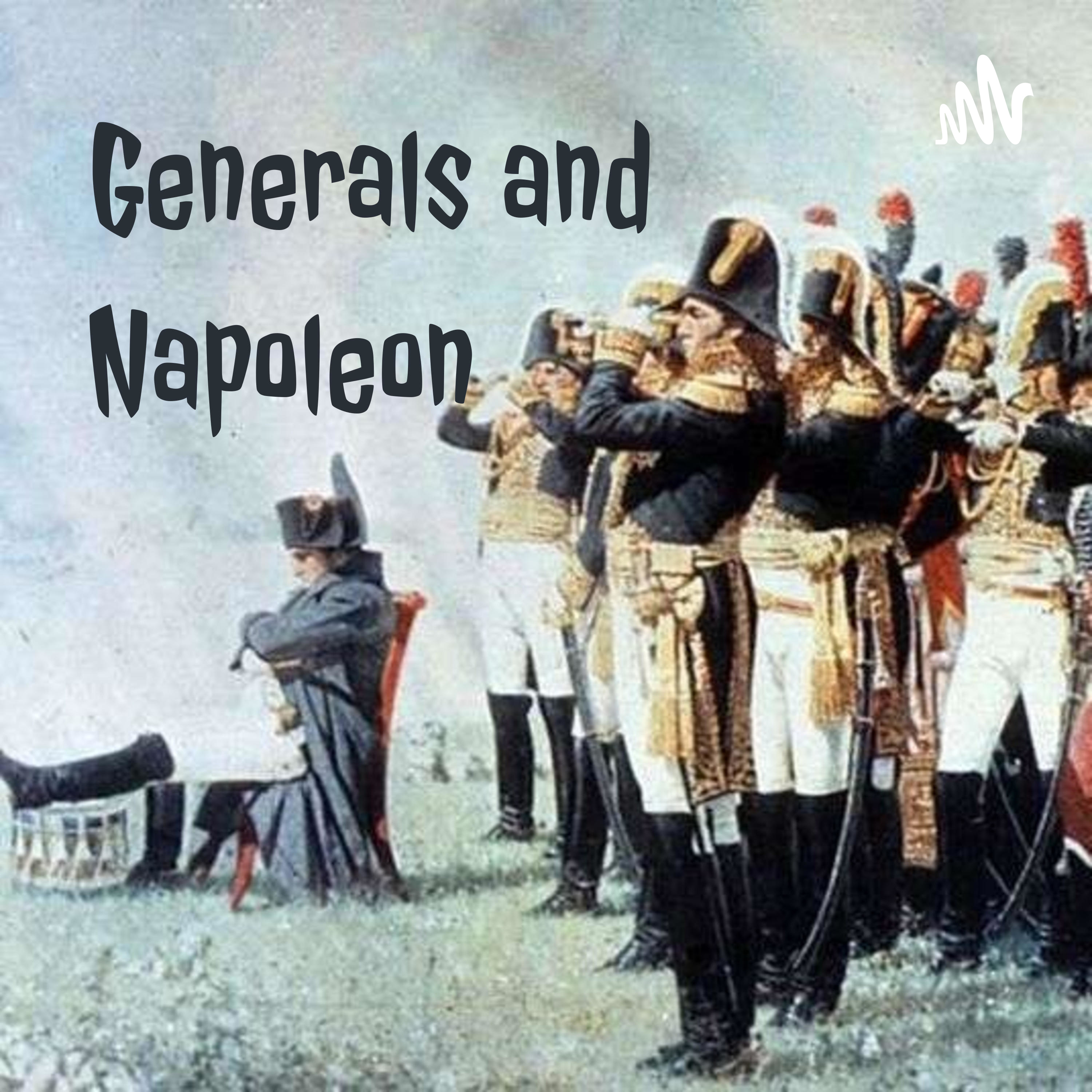
Generals and Napoleon
John W. Viscardo
Shipwrecks and Sea Dogs
Rich Napolitano
French Revolution & Napoleon (Grey History)
Grey History (William Clark)
The Life and Times of Frederick the Great
Alec Avdakov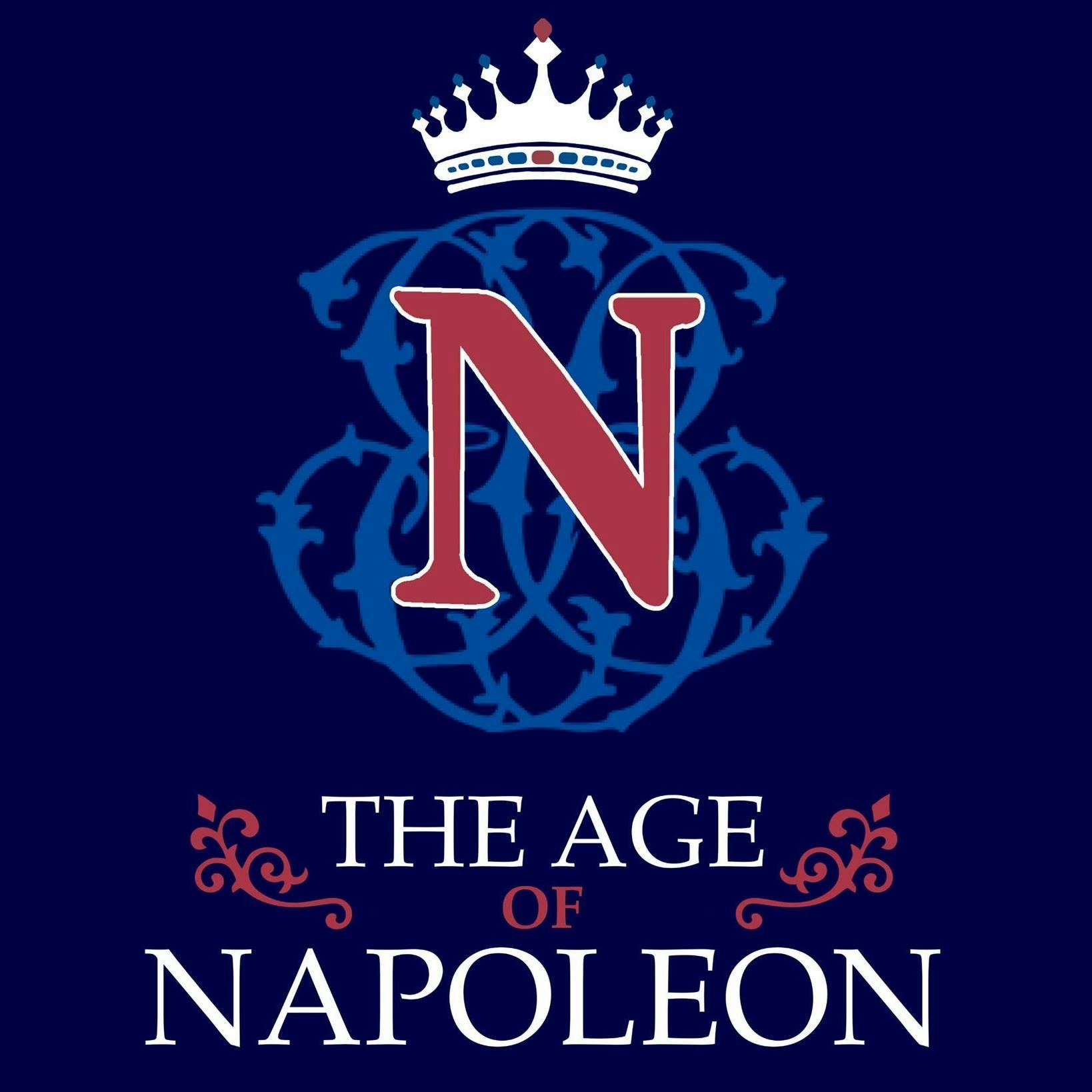
The Age of Napoleon Podcast
Everett Rummage
The Siècle History Podcast
Evergreen Podcasts
The Napoleonic Wars Podcast
Zack White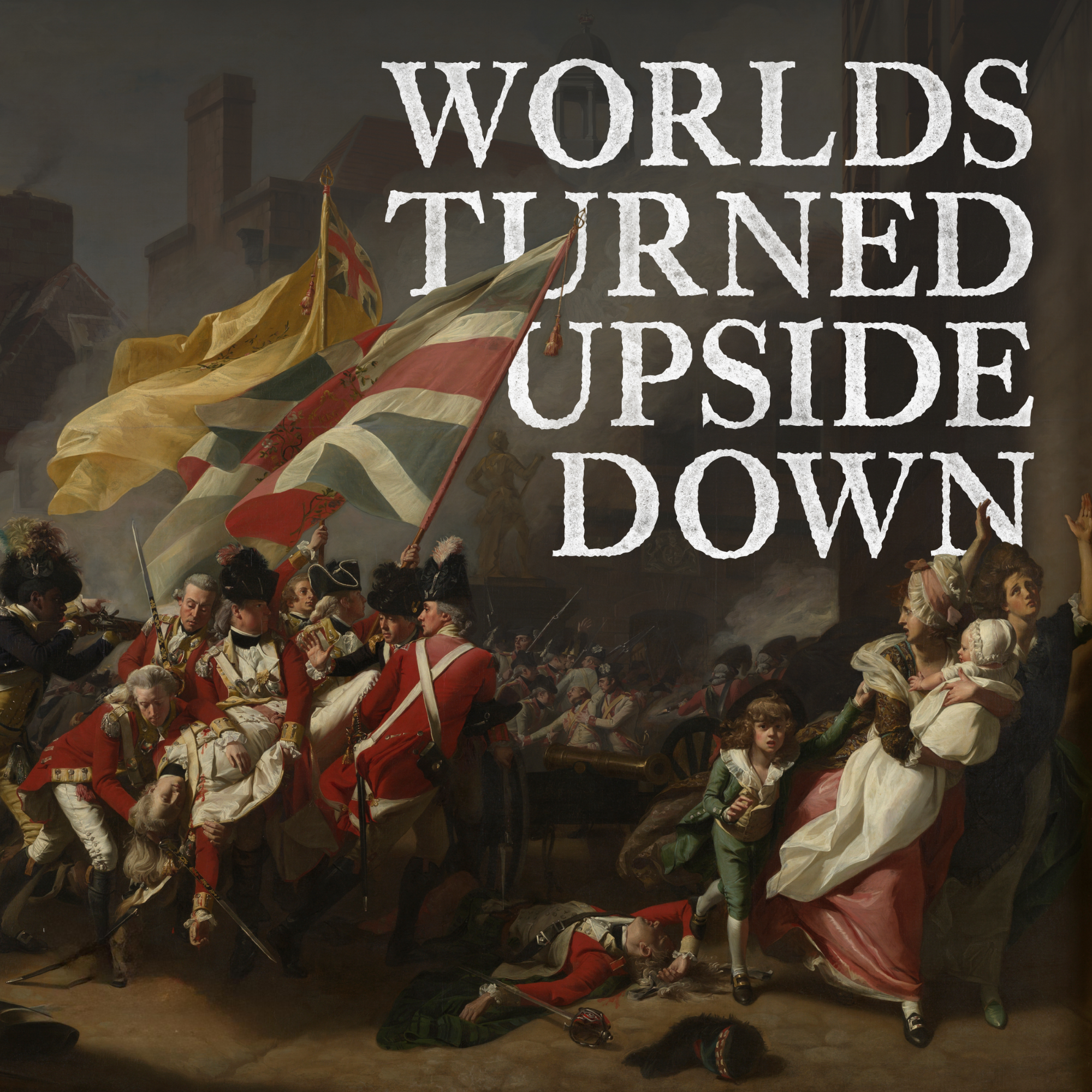
Worlds Turned Upside Down
Roy Rosenzweig Center for History and New Media
Empire-Builders
David Mainayar
Battles of the First World War Podcast
Mike Cunha
New York, Quebec, and The Water Route to the Center of the World
William Matthews
Deep into History
Deep into History
Battle Royale: French Monarchs
Ben Clarke and Eliza Sommers
A History of Japan
Justin Hebert
The French History Podcast
Evergreen Podcasts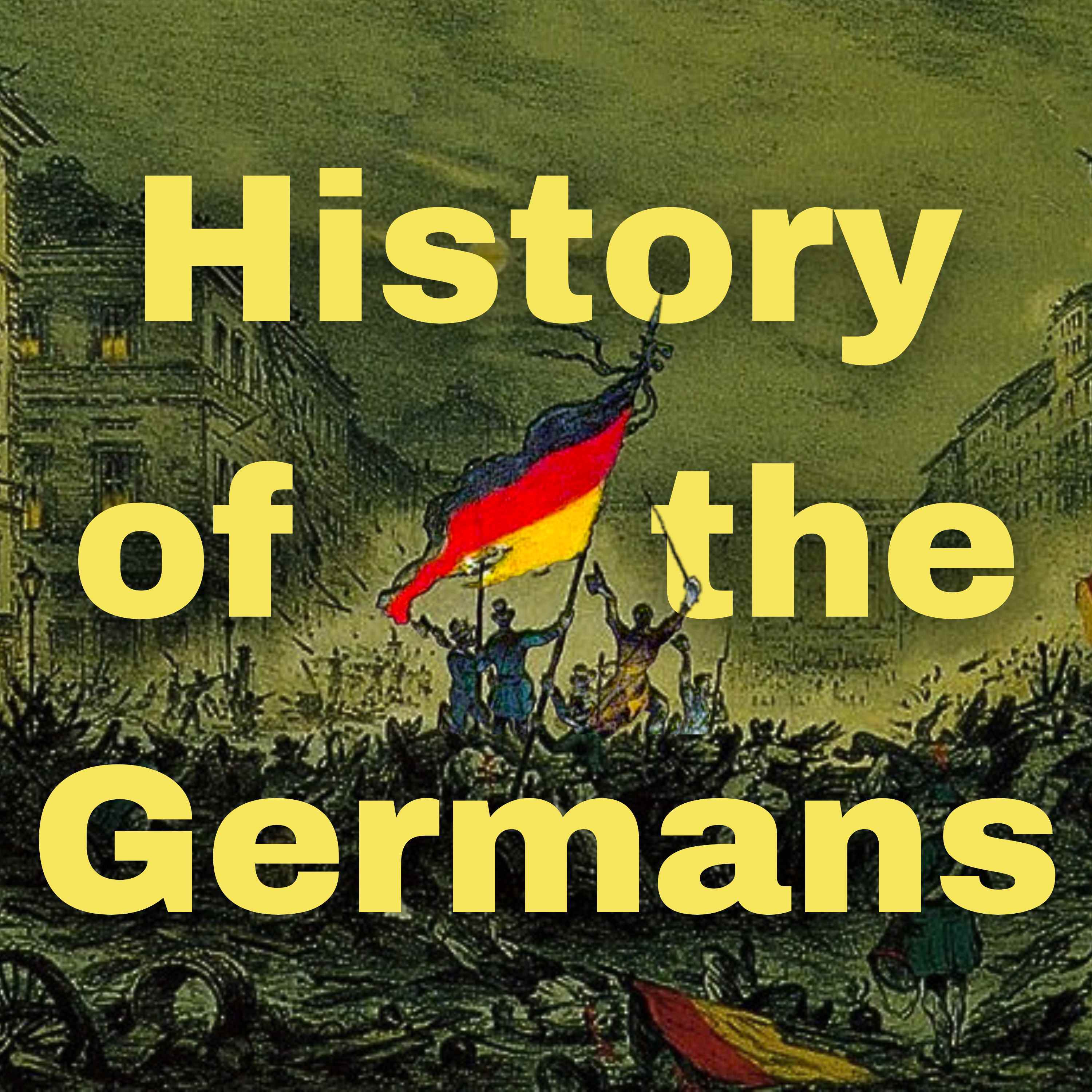
History of the Germans
Dirk Hoffmann-Becking
Half-Arsed History
Riley KnightFrench-Canadian Legacy Podcast
French-Canadian Legacy Podcast
The History of England
David Crowther
Canadian History Ehx
Craig Baird
Hugos There Podcast
Hugos There Podcast
Hugo, Girl!
Hugo Girl

